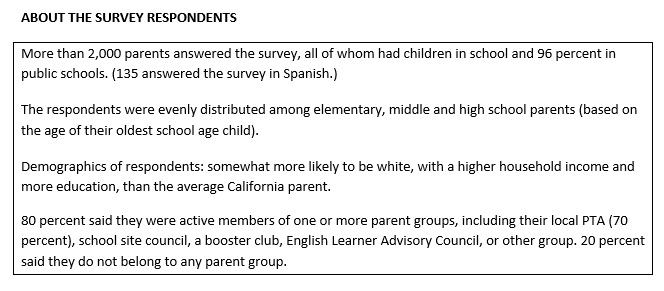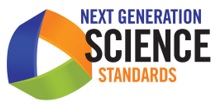November 6, 2018
Media Contacts:
- Brad Waller, Vice President for Communications, bwaller@capta.org
- Michelle Eklund, Assistant Executive Director, 951-314-3707 or meklund@capta.org
Nine Out of 10 Parents Agree Learning Science is Equally Important as Reading, Writing and Math
California parents say that science learning is vitally important and they support the kinds of changes in science instruction envisioned in the Next Generation Science Standards (NGSS), according to a recent survey conducted by California State PTA. The survey, with more than 2,000 respondents (see overview below), also revealed about half of parents believe their district does not provide enough science instruction at the elementary school level.
Parents’ belief in the importance of science was the strongest message out of the survey, with nearly nine out of 10 agreeing or strongly agreeing that learning science is equally important as reading, writing and math. The results were similar across all parents surveyed, regardless of the child’s age, their own science background, their ethnic and socio-economic background, or their engagement in school activities. In addition, 80 percent of parents reacted positively to messages that “science is central to how we understand and make sense of the world around us,” and “a strong science education is essential for college and career readiness.”
“As California proceeds with the implementation of the Next Generation Science Standards (NGSS), it is important for parents to understand and support the changes schools are making,” said California State PTA President Dianna MacDonald. “Our survey results indicate parents think science instruction is vital and that they welcome the kinds of changes the state expects schools to put into place.”
When presented with descriptions of how instruction will change under NGSS, more than 80 percent of the parents surveyed said they felt favorably or very favorably toward the new standards. Parents find particularly appealing the idea that the new standards encourage students to ask lots of questions and emphasize hands-on investigation and discovery. They were equally positive about the new standards beginning at an early age and engaging students who may not think of themselves as “science kids.”
The respondents were also nearly unanimous in supporting the need for children to be equipped with critical thinking, problem solving and analytical skills, consistent with the state’s learning goals in English language arts and mathematics.
The California State PTA survey also made clear that many parents see plenty of room for improvement in both the quality and quantity of science instruction their children currently receive.
- Only 56 percent are satisfied with the amount of science their child is receiving, and the responses were markedly less positive among elementary school parents, with just 43 percent agreeing.
- Less than half (46 percent) agreed with the statement “the science program at my child’s school is equal to the best schools in California.”
Asked whether their child attended a science class or had a science lesson either daily or weekly, seven out of 10 survey respondents said yes. However, that dropped to just over half (54 percent) among elementary parents.
Along with questions about their own children’s experiences, the PTA survey asked parents their opinion about whether science instruction in their school district as a whole was sufficient. The responses varied by grade level, with 53 percent saying their district was not providing enough science instruction in local elementary schools, 24 percent saying the same about middle schools, and 19 percent saying “not enough” in high school
The survey also indicates that schools could do more to enlist parents’ active engagement with science learning. Parents were nearly unanimous in saying it’s important for their child to have science-related learning experiences outside of the classroom but only half said they know a lot about the science their child is learning in school.
The majority also said they could better support their child’s science education if they better understood the curriculum and had ideas about fun science activities to do at home. Only about a quarter of parents agreed or strongly agreed that their child’s teacher provides those kinds of ideas, with the response consistent across all grade levels and ethnic backgrounds.
With the California State Board of Education’s formal adoption of instructional materials aligned with NGSS, more schools will be actively implementing new science teaching approaches. In addition, this spring students will take the first statewide science tests that will be reported for school accountability purposes. Notably, half of parents surveyed say that they are completely unfamiliar with the terms Next Generation Science Standards and NGSS.
Parents could play a significant role in helping schools’ NGSS implementation efforts succeed. However, their support will be much stronger if schools take the time to explain the new standards, address parents’ questions, and tap into their enthusiasm for science learning both in and out of school.

